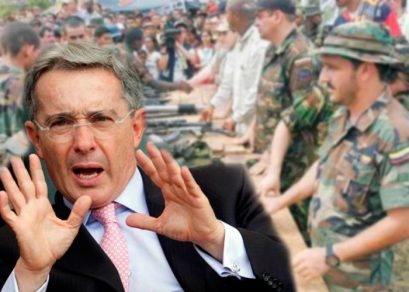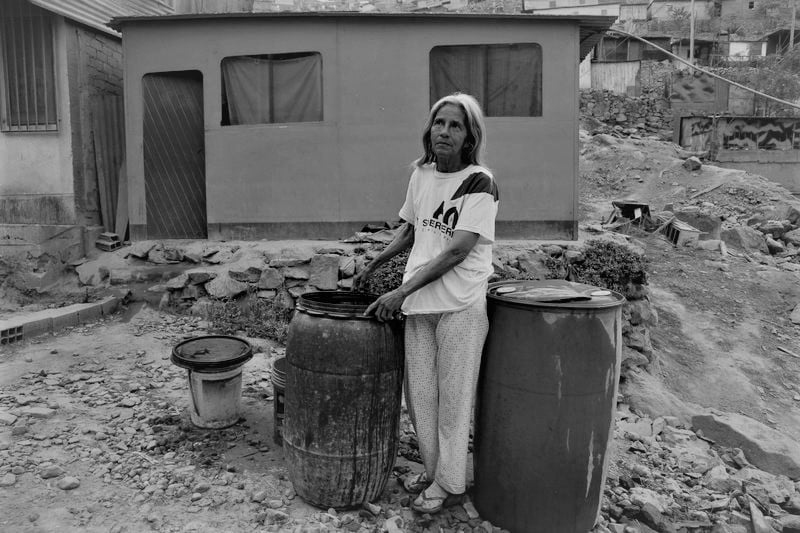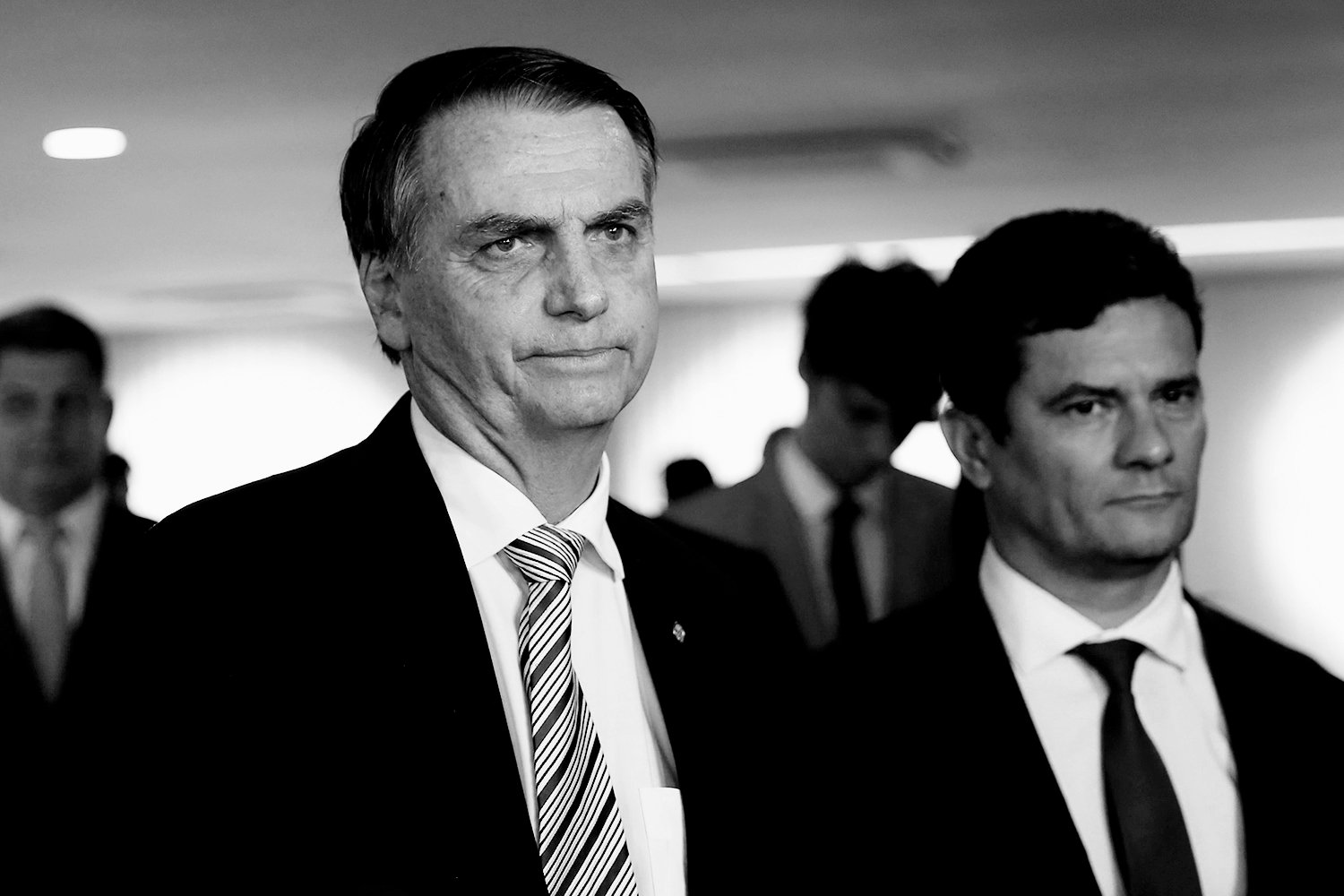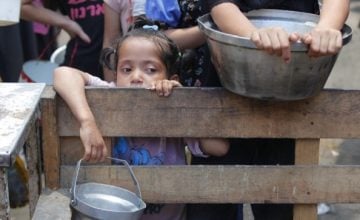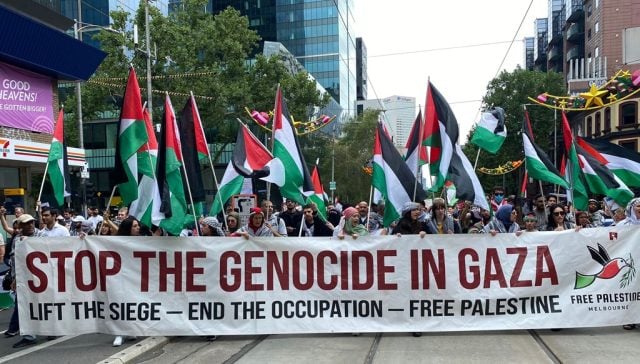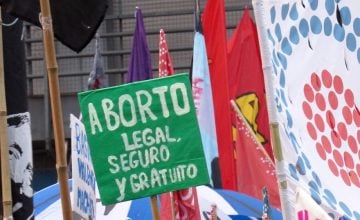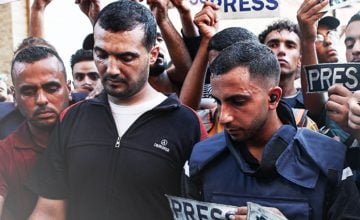Álvaro Uribe Vélez suffered a new judicial setback. The Colombian Supreme Court of Justice decided to close the case against Pablo Hernán Sierra, former Pipintá chief of the United Self-Defense Forces of Colombia (AUC), whom the former president accused of slander for having named him as part of the founders of the Metro Block, one of the most violent paramilitary groups in the history of Colombia.
In June 2012, the Prosecutor’s Office charged the ex-AUC member with the crime of slander, but three years later the ruling against him was acquittal. At that time, the representatives of the Public Ministry, the Prosecutor’s Office and the representative of the victims appealed the decision and the Superior Court of the city of Medellín, in a judgment made on June 5, 2015, confirmed the decision.
For this reason, the Court indicated that it will not examine the charges proposed in the cassation demands, declared the nullity of what was done in the lower levels as of the issuance of the judgment and considered that the process had already prescribed.
During an interview conducted by the senator of the Democratic Pole, Iván Cepeda, on August 19, 2011 in the Itagüí prison, Pablo Hernán Sierra pointed out Uribe and his brother Santiago to be co-founders of the Bloque Metro paramilitary group.
Faced with the stir that was caused by Sierra’s statements, the Uribe Vélez brothers denounced the ex-paramilitary for the crime of slander.
“I appreciate that the litigation that the Uribe Vélez brothers filed against the former paramilitary Hernán Sierra has ended. This last-resort decision makes it clear that Mr. Sierra would not have incurred in such slander and, therefore, the accusation that he is a false witness is also totally weakened and denied», said Senator Iván Cepeda in statements to Semana News.
The Supreme Court decision was a hard blow against Uribe, who lashed out at the Senator and branded him a liar.
«Iván Cepeda is lying. The Court did not acquit his false witness, Pablo Hernán Sierra, on the contrary, it revoked the acquittal and said that it cannot investigate the crime because it has prescribed”, he indicated.

Paramilitary block founded by Uribe
The AUC Metro Block caused terror in Colombia between 1996 and 2003, assassinating more than 10,000 people in the department of Antioquia. More than 50% of those victims were killed just because they were suspected of having links with the guerrillas.
According to the evidence gathered by the Justice and Peace Court, the paramilitary group emerged in 1995 and for years it has been trying to discover who was responsible for its formation.
Senator Iván Cepeda and two witnesses who belonged to the Metro Block, Pablo Hernán Sierra García and Juan Monsalve Pineda, have assured that three pairs of brothers were the founders of one of the most violent groups in Colombian history.
The brothers would be: Luis Alberto and Juan Guillermo Villegas Uribe; Pedro David and Santiago Gallón Henao; and finally Álvaro and Santiago Uribe Vélez.

The investigations associate the genesis of the Metro Block with the Las Guacharacas hacienda, a 2,000-hectare farm dedicated to livestock farming that was owned by the family of the former president, who is today a Colombian senator.
According to reports presented by Senator Cepeda, on January 2, 1995, when Uribe had just sworn in as governor of Antioquia, ELN guerrillas arrived heavily armed in Las Guacharacas, subdued the workers, and set fire to the main house. They stole 600 cattle heads, six horses and the laborers were given 24 hours to leave the place.
At first, the version emerged that by direct order of Uribe, the Army captured the guerrilla chief alias ‘Juan Pablo’, who ordered the operation in Las Guacharacas.
However, with time, it was learned that the military operation against the guerrilla leader never happened, but that Jacinto Alberto Soto Toro, alias ‘Lucas’, a paramilitary commander, was the one who captured him and turned him over to the Army.
Later, the judicial investigations concluded that ‘Lucas’ was one of the main commanders of the Metro Block.

Another key point is that in 1996, as Governor, Uribe legalized the creation of the Convivir El Cóndor security cooperative, granting the leadership of this organization to Luis Alberto Villegas Uribe, a renowned rancher in the region and a drug trafficker, with whom the former president maintained rural property businesses in the northeast of Antioquia.
«The Condor counted with the generous contribution of merchants and ranchers in the region, including Santiago Gallón Henao, who in March 2010 accepted his responsibility for the crime of drug trafficking before the First Criminal Court of Antioquia», reported Open Truth.
After the creation of a security cooperative, several disappearances, murders and massacres began to be registered in Antioquia, which were perpetrated by the Boque Metro.
In 1996, the paramilitary group began its expansion towards various regions of Antioquia in order to attack the FARC and ELN guerrillas.

Through violent acts and massacres, the Block managed to have a presence and dominance in 45 municipalities in the northeast, north and east regions of the department, including the city of Medellín and the metropolitan area.
As a consequence of the clashes between senior paramilitary commanders, a large part of their men were killed and the structure was exterminated in late 2004, leaving a trail of thousands of dead and displaced communities.
Investigations by the Prosecutor’s Office determined that funds from the Convivir El Cóndor cooperative were used to pay paramilitary members of the Bloque Metro.
María Patricia Trujillo, Luis Alberto Villegas Uribe’s right-hand and treasurer of the cooperative, received an eight-year sentence for these events, but in 2005 she admitted to being part of the Central Bloc and and she was sheltered by Justice and Peace.
Testimonies against Uribe
Witnesses and former paramilitaries, Juan Guillermo Monsalve Pineda and Pablo Hernán Sierra denounced that Uribe was one of the founders of the Bloque Metro.
Monsalve declared that he was a worker at the Las Guacharacas hacienda long before the burning in 1995. He confessed to having entered the ranks of the Metro Block and reported that the military base of said group was the estate, owned by Uribe.
In his testimony, he linked the former Colombian president with a massacre that the paramilitary group carried out in the municipality of San Roque on August 14, 1996.
«The massacre was ordered to recover the cattle. Álvaro Uribe ordered it», he indicated, and he also pointed him (Uribe) out as the one who «coordinated the military», action.
Likewise, this former paramilitary named brothers Álvaro and Santiago Uribe, brothers Luis Alberto and Juan Villegas Uribe, and Santiago Gallón, as members of that illegal armed group.
For his part, Hernán Sierra García, alias ‘Alberto Guerrero’, who was one of the leaders of the Cacique Pipintá Front, agreed with Molsalve’s testimony, and related that the creation of the Metro Block was due to the theft of 600 heads of cattle and several equines from the Guacharacas hacienda; and was formed to fight the Bernardo López Arroyave Front of the ELN, which was attributed the theft of livestock.
«All the heads of the self-defense groups know that Álvaro Uribe was our political leader, he gave us the rifle and then took it from us», he assured.
As one of the proofs of his testimony, the former paramilitary released a video in which the relationship between the former president and the paramilitaries is observed.
Last week, Pablo Hernán Sierra sent a letter from the Cómbita prison, in which he asked Álvaro Uribe to resign from the Senate because of the judicial sentences against him.
Boomerang effect
Currently, there are almost 60 open investigations in Colombia against Álvaro Uribe, ranging from homicide to vote buying. It is known that 14 are in the Supreme Court and another 45 in the Investigation and Accusation Commission of the House of Representatives.
However, there is one that has attracted attention, that of alleged procedural fraud and the purchase of witnesses, and that is precisely related to the Metro Block.
The case for which the former Colombian president could face a judicial sentence of between six and eight years in prison, began with a paradox.
It all started in September 2014, when, during a debate in Congress, Senator Iván Cepeda, from the left-wing Polo Democrático Alternativo party, accused Uribe of having ties to paramilitary groups and drug traffickers.
To support his accusations, he presented various testimonies from former paramilitaries, including Juan Guillermo Monsalve Pineda and Pablo Hernán Sierra,
After finishing that session, Uribe went to the Supreme Court of Justice to expand a lawsuit that he had already filed against Cepeda and accused him of searching former paramilitaries in Colombian prisons with the aim of serving as false witnesses against him.
After several years and evaluating a series of testimonies, in February 2018 the highest court in Colombia made a decision that was a hard blow to Uribe’s claims, since it not only closed the investigation against the politician of the Democratic Pole, but also had a bumerang effect against him, since a formal investigation was opened for the manipulation of witnesses, which entailed the crimes of bribery and procedural fraud.
Thus, Uribe Vélez ended up being investigated for the crime for which he sued Iván Cepeda.
Two people close to the former Head of State are involved in this bribery plot, who apparently tried to reverse Monsalve’s statements, offering him money and judicial benefits in exchange for incriminating Senator Cepeda.
These are Álvaro Hernán Prada, current representative to the Chamber of the Democratic Center, and Diego Javier Cadena Ramírez, Uribe’s personal lawyer: both would have made offers to the former paramilitary, the BBC agency reported.
Likewise, it was learned that Cadena was visiting several prisons to offer money to part of the 42 paramilitaries involved in the case to testify on behalf of the former president and his brother Santiago.
In fact, Monsalve claimed to have a recording of the moment when Uribe’s lawyer pressured him, and other witnesses reported receiving money from the lawyer, who defended himself, claiming that it was part of a «humanitarian aid» for the ex-paramilitaries.
«In reaction to that judicial decision and apparently with his consent, people close to former President Uribe have allegedly initiated new acts of witness manipulation (…) The Court found evidence to initiate this process in which Senators Uribe and Prada must respond for the aforementioned crimes”, assured the high court when opening the judicial process.
While Uribe waits for the Court to finish resolving his legal situation due to the manipulation of witnesses, the resolution of the highest court is also pending due to the scandal known as the “Ñeñepolítica”, which involves him with the purchase of votes to benefit the then presidential candidate Iván Duque.
